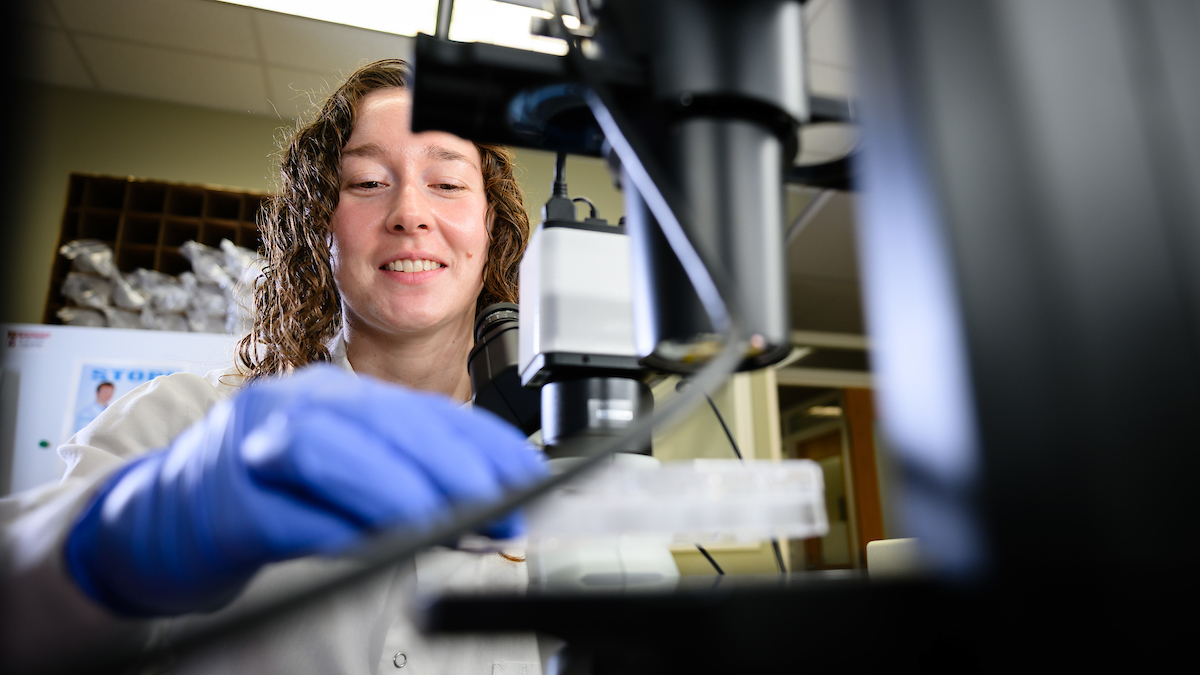‘Not Just Veterinarian Issues’: Legislative Fly-In Gives NC State Students Chance to Hone Advocacy Skills
Providing the opportunity for students to get hands-on experience was a priority for Dr. Kate Meurs, dean of the NC State College of Veterinary Medicine.
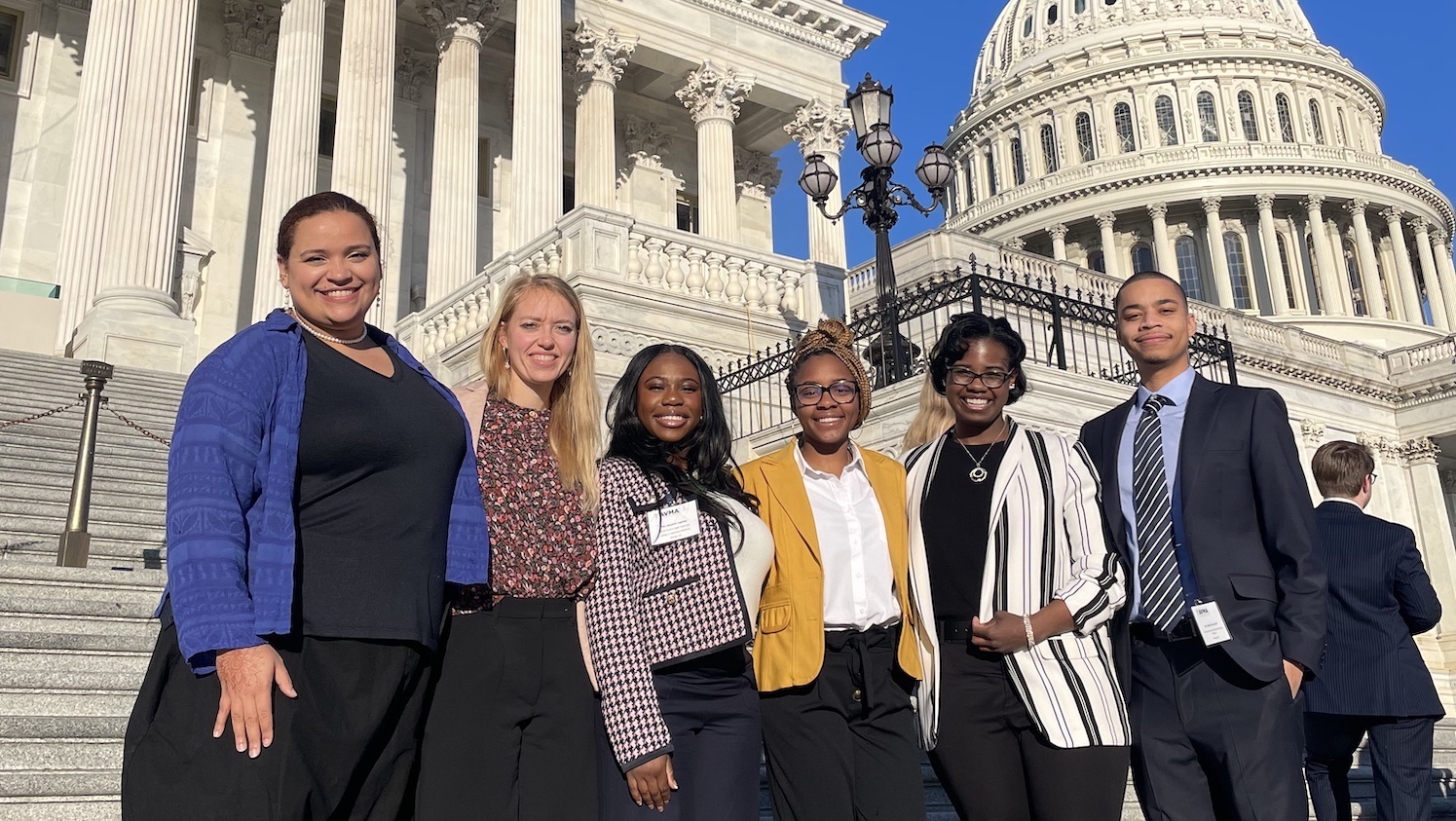
Six NC State College of Veterinary Medicine students added conversing with congressional staffs to their impressive list of skills this week as part of the American Veterinary Medical Association’s Legislative Fly-In to Washington, D.C.
Making the trip were Lilly Smith, Class of 2024 and NC State’s representative to the Student American Veterinary Medical Association; Malik Chennault, Hannah Wubbenhorst and Jasmine Lapsley, Class of 2025; and Isla Farrow and Anna Jones, Class of 2026.
Providing the opportunity for students to get hands-on advocacy experience was a priority for Dr. Kate Meurs, dean of the NC State College of Veterinary Medicine.
“It’s very important that our students understand how the government supports agriculture, the agricultural sector, biomedical research, human and animal health, and how the process works to bring forth concerns and help put important ideas forward,” said Meurs. “So I really appreciate that the AVMA started this program a few years ago. Even if the students go into a practice setting, we want them to be very involved in their community.”
The association’s annual Legislative Fly-In brings veterinarians and veterinary students from across the country to talk with lawmakers about legislation important to AVMA, veterinarians and the entire community. This year, the students were briefed on two pieces of legislation – the Rural Veterinary Workforce Act and the Healthy Dog Importation Act – before they met with congressional representatives.
The NC State veterinary students talked with staff members from the offices of Sen. Ted Budd, Sen. Thom Tillis and Rep. Deborah Ross, all from North Carolina.
The group chose Farrow, a Greenville, North Carolina, native, to brief Budd’s legislative assistant on the Rural Veterinary Workforce Act, which is particularly pertinent to the NC State College of Veterinary Medicine. The college educates the majority of veterinarians in a state where poultry and eggs make up the single-largest share of farm cash receipts and that has the nation’s third-highest number of hogs.
“I showed myself that if I just step outside of my comfort zone and try new things, and continue to learn and put myself in positions that allow me to learn to be better, I’ll continue to grow,” Farrow said. “Seeing the legislative assistants reacting and acting interested in what we were talking about and wanting to help made me feel good. As a whole, our group did a great job.”
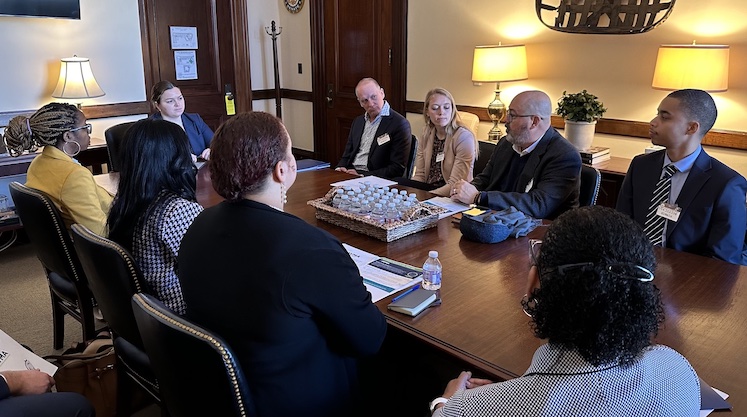
The Rural Veterinary Workforce Act would help rural areas increase access to veterinarians by maximizing money allocated to the Veterinary Medicine Loan Repayment Program, which helps recruit and retain veterinarians in high-need areas by assisting with the significant obstacle of educational debt. Program participants receive up to $75,000 toward student loan debt in exchange for three years of service in any USDA-designated veterinary shortage area.
“Right now, North Carolina has at least six USDA-identified areas that have a veterinarian shortage, and most of them are in public health,” Farrow said. “North Carolina is big in cattle, swine and poultry. So we were able to tell them the importance of maximizing the funding to the loan repayment program to allow people to go to these rural areas because they’ll know they’ll be able to relieve that debt-to-income ratio.”
The Healthy Dog Importation Act would help prevent the introduction and spread of diseases impacting animal and human health, the AVMA says. The legislation would improve importation standards to ensure a dog is healthy when being imported into the United States. It would also ensure every imported dog would have a certificate of inspection from a licensed veterinarian confirming they are in good health and not at risk of spreading diseases that could endanger other animals and the public.
“Both of these bills and other things being discussed illustrate the whole idea of One Health and how all these things are interconnected,” said Smith, who plans to work for the USDA after she receives her DVM in May. “It was really cool to talk to staffers about why the Healthy Dog Importation Act is important for public health and North Carolina. Any diseases coming in could be detrimental to North Carolina’s swine and poultry industries. I’m just really passionate about the intersection of animals and public health.”
One Health is a collaborative approach to health that considers the intersections among human, animal and environmental well-being. Farrow echoed the importance of helping others, especially lawmakers, see how everything is connected.
“These aren’t just veterinarian issues,” she said. “They impact the animals, they impact the humans and they then can impact the economy, especially if we don’t have these boundaries that can get to our livestock. We’re a big agricultural state. This is a One Health issue.”
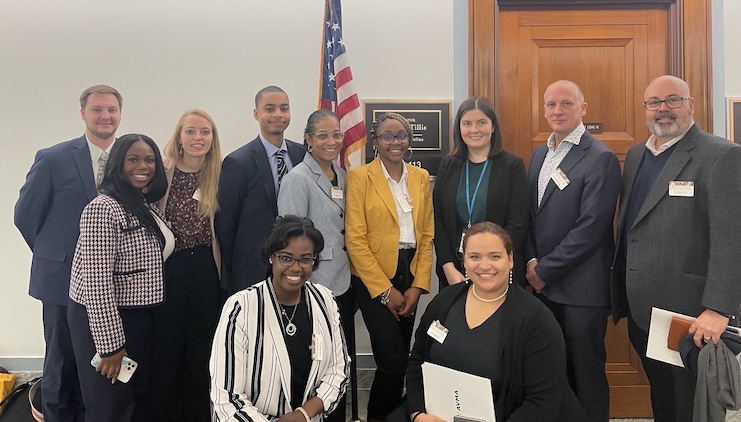
Smith said she appreciated the chance to learn more about how policies are made and how citizens of any background can be advocates.
“There are opportunities for advocacy that I wasn’t aware of, and I also learned we as veterinarians can be a resource for lawmakers deciding where to allocate money and what programs to put in place,” said Smith, a native of Weaverville in Western North Carolina. “They may not be aware there are people who can help provide medical and scientific insight into these issues.”
The Legislative Fly-In was federally focused, but Smith said she now wants to explore other opportunities to advocate for issues important to veterinarians at the state and local levels.
“Something I learned and want to tell other vets is, ‘You can get involved in this,’” Smith said. “I so greatly appreciate that Dr. Meurs supported us in having this opportunity. We learned that’s not something every school necessarily has, so we just appreciate her incredible support.”
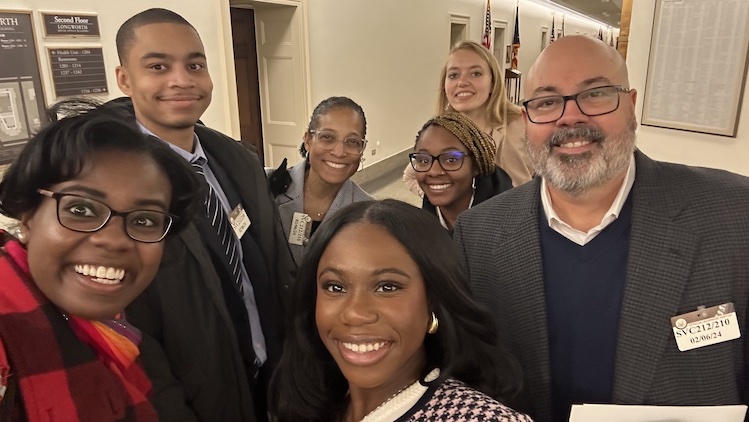
- Categories:

